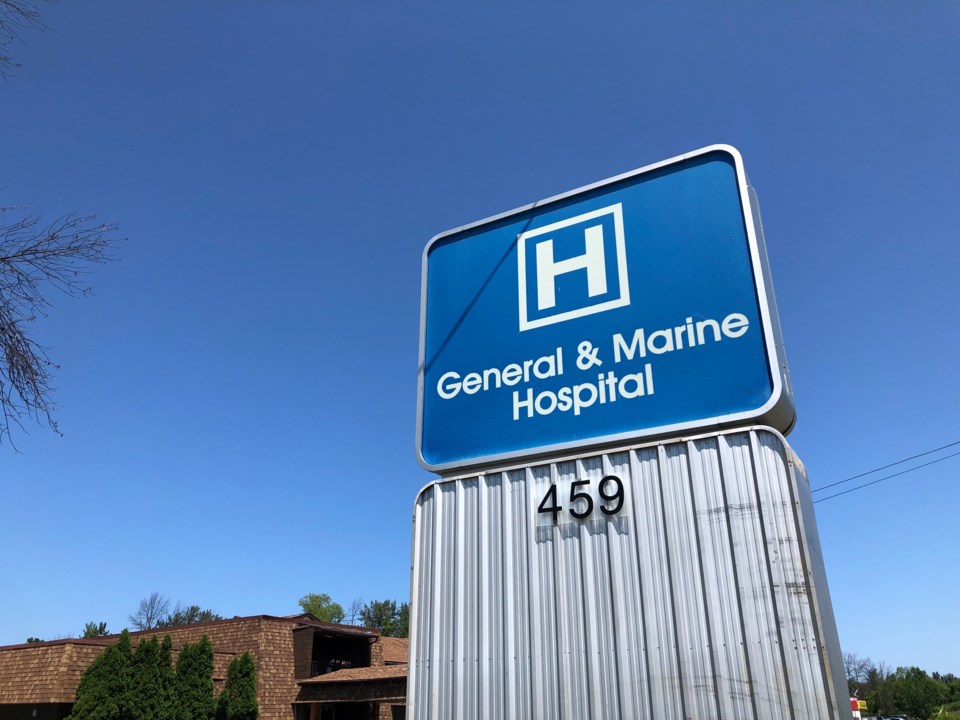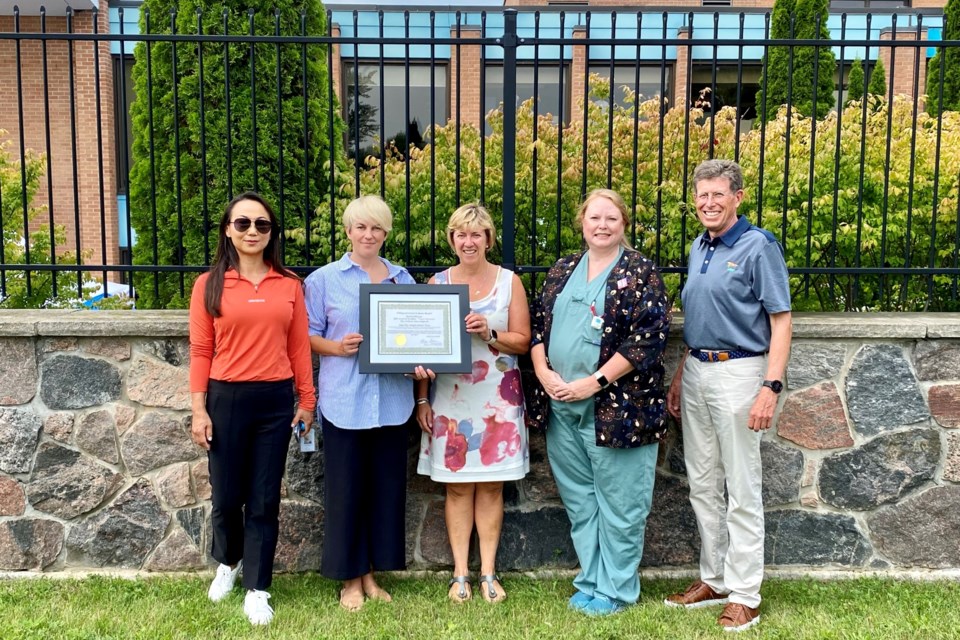It’s possible to get a knee, shoulder, or hip replaced at Collingwood General Marine Hospital (CGMH) and be home the same evening.
While the wait for the surgery may be long – one of the longest in Ontario – the hospital stay is getting shorter thanks to a concerted effort by the surgical team, hospital administration, support staff and patients who have helped establish a same-day discharge joint replacement program.
“Many, many years ago when we started doing joint replacements here, the length of stay was five days,” said Shannon Allwood, manager of inpatient surgery and obstetrics at CGMH.
Joint replacement surgeries were completed on Mondays only, as patients spent the rest of the week in the hospital, so there weren’t available recovery beds for more surgery patients.
“Over the years, the research has supported … that people can actually recover better at home,” said Allwood, noting there have also been research-backed improvements to best practices in joint replacement surgery.
“In an effort not to cancel surgeries and to reduce the wait times for the patients in our community and allow them to have their surgery closer to home, we started to explore the same-day discharge program,” said Allwood.
CGMH is considered an orthopedic centre of excellence in Ontario, providing hip, knee, and shoulder replacements under the provincial and Local Health Integration Network's regional joint replacement program.
Patients need a referral from their family doctor, then they can be assessed and scheduled for surgery by one of CGMH’s Orthopedic surgeons Dr. Henry Koo, Dr. Darryl Collings, and Dr. Olivia Cheng.
 The hospital started to look at changes for joint replacement hospital stays in 2018, but that work was stalled when the COVID-19 pandemic hit in 2020.
The hospital started to look at changes for joint replacement hospital stays in 2018, but that work was stalled when the COVID-19 pandemic hit in 2020.
“There were multiple challenges … patients didn’t really want to come to the hospital and then stay … and we had challenges in terms of … health human resources … and access to the operating room or surgical beds,” explained Cheng, who is chief of surgery at CGMH.
However, the government response to a backlog of surgeries that piled up during the pandemic delivered some extra funding to CGMH in the form of the surgical innovation fund, which the hospital used to expand the same-day joint surgery program.
The joint-replacement program has grown from two or three surgeries per week in 2006 to three surgeries a day, four or five days a week now.
CGMH is limited by the province in the number of total joint replacement surgeries they can do in a year, as funding formulas are based on population data that can be out-of-date.
Dr. Cheng explained that the provincial government decides on a total number of joint replacement surgeries it will fund in a year, and then allocates that number to the various Ontario hospitals with more surgeries being allocated to hospitals serving larger populations.
However, said Cheng, the population accessing care at Collingwood hospital has ballooned, and CGMH had one of the province’s longest wait times for total knee and hip replacements.
Cheng said CGMH administration and the board of directors has decided the surgical team can complete as many joint replacements as possible to address the backlog of patients waiting for the surgeries, even though the hospital hasn’t received the formal allocations from the province.
“If we go beyond the number that’s allocated, the hospital might not get the funding for that,” said Cheng. “But what our hospital decided to do this year is for us to do as many as we can to address the backlog in the hope that the government will fund us later on, but it’s not a guarantee.”
Same-day discharge is not for every patient, as some circumstances and health conditions require patients to stay at the hospital overnight or longer during their recovery.
Cheng said the goal for the same-day joint replacement program is for 60 per cent of patients to go home on the same day.
In 2022, about 48 per cent of joint replacement surgery patients were discharged from the hospital on the same day of their surgery.
There are a lot of deciding factors, some within the control of the surgical team and some outside of it. A joint replacement surgery can start with consultations up to a year and a half before the surgery.
To qualify for same-day discharge, a patient has to be healthy enough and have the right support in place at home. A rehab team also has to be able to connect with the patient that day to start the post-surgery treatments.
Recovering at home from joint replacement surgery is becoming more common in Ontario. Many larger city hospitals have been offering same-day joint replacement surgeries for several years.
“When we started this back in 2018/2019, it was sort of pushing the envelope for a hospital our size,” said Cheng. “But when COVID hit, I think it really pushed the program internationally just because everybody was facing the same challenges.”
For Dr. Cheng, there were many reasons to support same-day joint replacement surgeries, chief among them was the benefit to the patient.
“The evidence actually shows it’s better for patient recovery, they have less chance of developing infections, and patients recover better at home because they’re less anxious and they have their family there for them,” said Cheng. “They sleep in a more comfortable bed, they get up and move more.”
The program does depend on support from several groups of people, including the surgical team, environmental services, the physio and occupational therapists, and patients and their families.
“A lot of this success does come from the patient’s trust in our hospitals and our surgeons … because they do have to have the trust that we’re there for them if they need us,” said Cheng. “And also their family members and their loved ones who end up stepping up to help them because, without them, I don’t think we would have a successful program.”
At the outset, CGMH formed a working group to establish the program, developing protocols and working out the practical side of same-day discharge. Cheng said hospital staff and surgeons are on board with the program and excited about it.
Patients, too, have reported back favourably, she said.
“Whole teams of people collaborated together, every stakeholder was involved in this, right down to housekeepers,” said Allwood. “It’s an example of how we can support our community when everyone works together.”
Data collected from patients who were discharged on the same day as their surgery compared to those who stayed overnight showed comparable results, with the ones going home on the same day having lower complication rates. However, to qualify for same-day discharge, a patient has to be relatively healthy and have strong support in place at home.
As CGMH works with the province on the hospital redevelopment project, which could include a rebuilt hospital or new hospital on a different site, Cheng and Allwood said it would be nice to expand the joint replacement program.
“The next step in orthopedic surgery, we’ll be looking at robotic surgeries,” said Cheng. “We’re hoping with the new hospital and new funding, that might be a direction that we’re looking at.”

